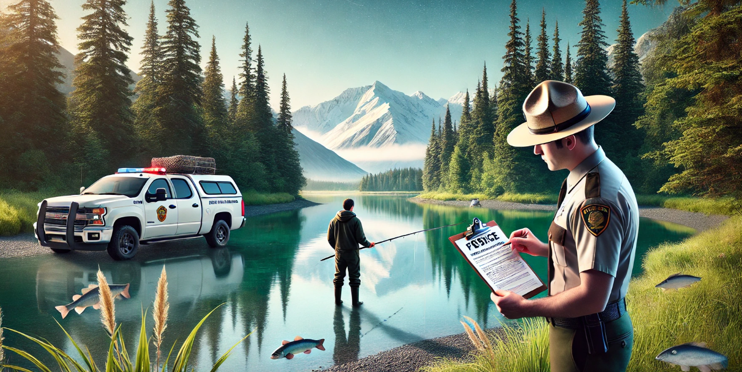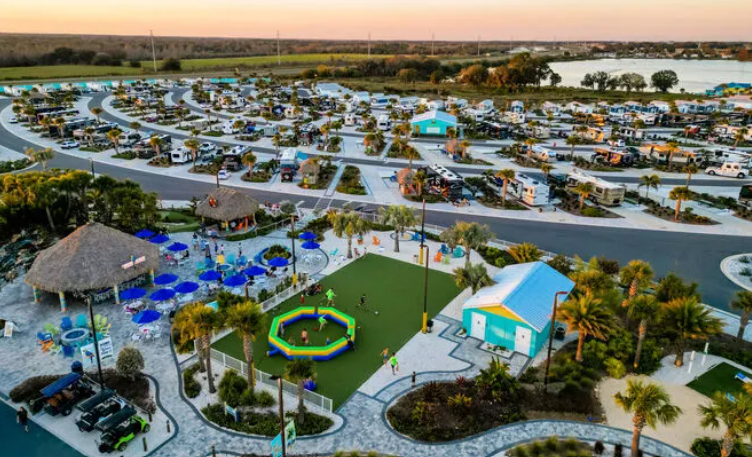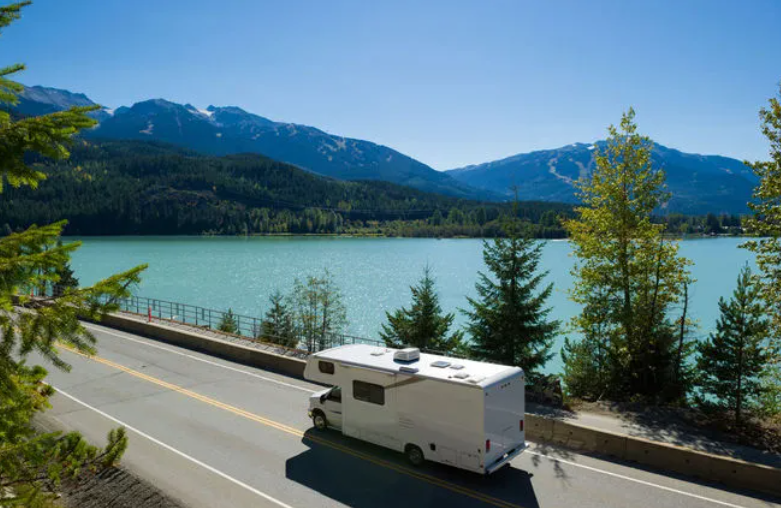Alaska strictly enforces its fishing regulations to protect fish populations and ensure sustainability. If an individual is caught fishing without a valid license, they may face:
• Fines and Penalties – Depending on the circumstances, fines for fishing without a license can range from $100 to several thousand dollars, especially if the violation involves illegal fishing methods or protected species.
• Confiscation of Equipment – In serious cases, authorities may confiscate fishing gear, boats, or even the illegally caught fish.
• Misdemeanor Charges – Repeated offenses or significant violations may lead to misdemeanor charges, resulting in higher fines and possible jail time.
• Revocation of Future Fishing Privileges – Violators may lose the right to obtain a fishing license for a certain period, depending on the severity of the offense.
To avoid these consequences, it is essential to obtain the appropriate fishing license before engaging in any fishing activity in Alaska.
Types of Fishing Licenses and Fees in Alaska
Alaska offers several types of fishing licenses based on residency, age, and fishing duration. Below is a breakdown of the different licenses and their associated fees.
1. Fees for Different Types of Fishing Licenses
The cost of a fishing license varies depending on the type of license and whether the applicant is a resident or non-resident. As of the latest information from the Alaska Department of Fish and Game (ADF&G), here are the general fees:
Resident Licenses
• Annual Sport Fishing License – $20
• Low-Income Senior License (60+ years) – Reduced Fee
• Disabled Veteran License – Free
• Lifetime License – Varies based on age and residency status
Non-Resident Licenses
• 1-Day Sport Fishing License – $15
• 3-Day Sport Fishing License – $30
• 7-Day Sport Fishing License – $45
• 14-Day Sport Fishing License – $75
• Annual Sport Fishing License – $100
Additional permits may be required for king salmon fishing. Always check with the ADF&G website for updated fees and regulations.
How to Obtain a Fishing License in Alaska
There are multiple ways to obtain a fishing license in Alaska, making it convenient for both residents and visitors.

1. Purchasing Your License Online
Alaska offers an easy and quick way to purchase fishing licenses through the ADF&G website (www.adfg.alaska.gov). The online system allows users to:
• Select the appropriate license type
• Pay using a credit or debit card
• Receive a digital copy of their license via email
This is a great option for those who want to secure their license before arriving in Alaska.
2. Purchasing Your License In-Person
For those who prefer to buy a fishing license in person, licenses can be purchased at:
• ADF&G offices throughout the state
• Outdoor retailers and bait shops
• Grocery stores and sporting goods stores
When purchasing in person, be sure to bring identification and any required documentation (such as proof of residency for resident licenses).
Details About Specific Fishing Licenses
Alaska offers several different types of fishing licenses depending on the duration and eligibility requirements.
1. 365-Day Fishing Licenses
For both residents and non-residents, an annual fishing license is valid for 365 days from the date of purchase. This is the best option for those who fish regularly throughout the year.
2. Short-Term Fishing Licenses
Short-term licenses are ideal for tourists or individuals who only plan to fish for a few days. Options include:
• 1-day
• 3-day
• 7-day
• 14-day
These licenses allow flexibility for travelers while ensuring compliance with Alaska’s fishing regulations.
3. Lifetime Fishing Licenses
Alaska residents can apply for Lifetime Fishing and Hunting Licenses, which offer a one-time purchase for a lifetime of fishing privileges. Prices vary based on the applicant’s age at the time of purchase.
4. Duplicate License Fees
If a fishing license is lost or damaged, a duplicate can be obtained for a small replacement fee, which varies based on the type of license.
Special Fishing Licenses for Eligible Individuals
Alaska provides free or reduced-fee licenses for certain groups, including disabled veterans, recovering service members, and low-income seniors.

1. Disabled Veteran Fishing License
Alaska offers a free fishing and hunting license to veterans who:
• Are Alaska residents
• Have a 50% or greater service-connected disability
Eligible veterans must apply through the ADF&G website and provide documentation of their disability.
2. Recovering Service Member Fishing License
Active-duty military personnel classified as recovering service members may be eligible for a free fishing license in Alaska. Applications must be submitted with supporting military documentation.
3. Reduced-Fee Fishing License for Low-Income Seniors
Alaska residents aged 60 or older who meet certain income requirements can apply for a reduced-fee fishing license. Proof of residency and income may be required during the application process.
4. Free Fishing Licenses
In addition to the free licenses for disabled veterans and recovering service members, Alaska offers certain permanent identification cards that act as free fishing licenses for qualifying seniors.
How to Apply for a Free or Reduced-Fee Fishing License
Eligible individuals can apply online or in person at an ADF&G office. Required documents may include:
• Proof of residency
• Disability documentation (for veterans)
• Income verification (for low-income seniors)
Applications should be submitted well in advance to allow time for processing.
Reprinting Your License
If you lose your fishing license, you can easily reprint it online by logging into your ADF&G account. Some locations may also provide reprints for a small fee.
Purchasing a Lifetime License
To purchase a Lifetime Fishing License, applicants must:
• Be a resident of Alaska
• Provide proof of residency
• Submit an application through the ADF&G website or an ADF&G office
Lifetime licenses are available for individuals of different age groups, with fees varying accordingly.
Residency Information for Fishing Licenses
To qualify for a resident fishing license, applicants must meet the Alaska residency requirements, which include:
• Living in Alaska for at least 12 consecutive months before applying
• Intending to remain a permanent resident
• Not claiming residency in any other state
Non-residents must purchase a non-resident license to fish legally in Alaska.
SOURCE LINK : Alaska Department of Fish and Game
Conclusion
Fishing in Alaska is an incredible experience, but it comes with legal responsibilities. Anyone planning to fish in the state must obtain the appropriate license to avoid fines, penalties, and potential legal action. With various license options available, from short-term permits to lifetime licenses, there is a suitable option for everyone. Whether purchasing online or in person, ensuring compliance with Alaska’s fishing regulations will help protect the state’s valuable fish populations while allowing anglers to enjoy the sport legally and responsibly.
For the latest fishing license requirements, visit the Alaska Department of Fish and Game website at www.adfg.alaska.gov.






